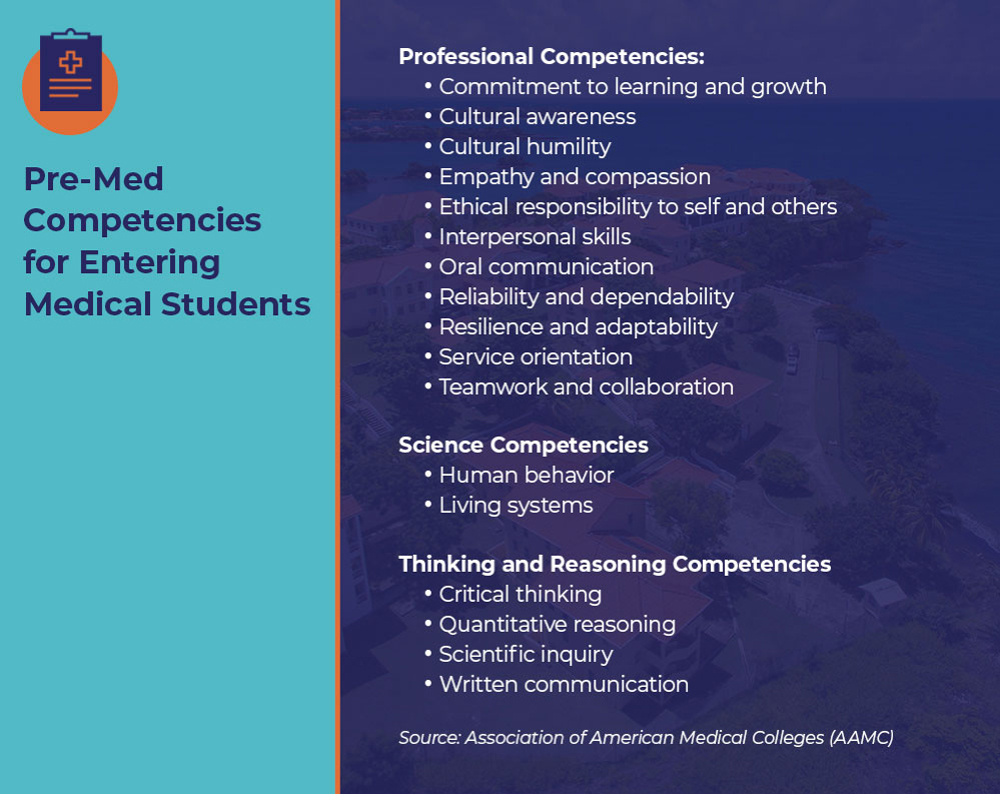As qualified as you might feel when applying to Doctor of Medicine (MD) programs, it’s important not to get ahead of yourself and to remain thoughtful while completing each and every component of your applications. Your medical school personal statement is a particularly critical element that gives you the opportunity to convey your best qualities to admissions teams.
This medical school essay provides a more intimate look at who you are as a person, what made you choose to become a doctor, and what you envision for your career after earning your MD. In addition to the content of this narrative, your quality of writing, organization of ideas, and attention to detail can also be indicative of your potential to succeed as a med student.
Before you start planning your own approach, consider the following advice on how to write a personal statement for medical school.
6 Features of a stand-out medical school personal statement
It’s helpful to note that the following elements are important to keep in mind when crafting personal statements within the American Medical College Application Service (AMCAS), the American Association of Colleges of Osteopathic Medicine Application Service (AACOMAS), and the Texas Medical and Dental Schools Application Service (TMDSAS) alike.
1. Make them personal
Most elements of your med school applications will seem entirely un-personal. While things like your GPA, MCAT score, and transcripts can certainly speak to your academic qualifications, they don’t necessarily provide admissions teams with a full picture of who you are as an individual.
Your medical school personal statement, on the other hand, allows you to represent your authentic motivations and interests to your target programs. Before you start writing, take some time to reflect on why you are interested in becoming a doctor. Having a clear understanding of the driving force behind your medical career goals can be a great jumping off point as you determine how to frame your essay.
Rather than simply listing your achievements, think about where you have been and why you have continued down this unique path. You may also want to speak to an area of specialization that piques your interest or a particular topic you hope to research during medical school.
2. Tell a compelling story
Your journey thus far hasn’t solely been about attending classes and getting good grades in your medical school prerequisite courses. If you want your medical school personal statement to stand out, you’ll need to provide some notable takeaways within your captivating narrative.
Think about some memorable experiences you’ve had that relate to your personal development or your goals in medicine. Consider narrowing down your ideas by discussing them with a mentor or a few of your peers to determine which might seem the most unique or interesting.
Keep in mind that an experience doesn’t have to be extravagant to make for good subject matter; the key is selecting something that has been impactful for you personally. A seemingly unremarkable event in your life can still serve as a great essay topic, so don’t get stuck trying to think of a monumental moment.
3. Reveal your best qualities
Whatever narrative thread you choose for your medical school essay, you’ll want to be sure it highlights your personal selling points. Ideally, your personal statement should speak to how you exhibit many of the core competencies for entering medical students highlighted by the Association of American Medical Colleges (AAMC).
Consider the following AAMC Pre-med Competencies:

Keep these in mind as you craft your med school personal statement and find ways to highlight your proficiency in some of those competencies.
4. Clean and professional
Even the most compelling medical school personal statement can fall flat if it is full of grammatical errors, sloppy paragraph structure, or punctuation mistakes. There’s no excuse for basic writing mishaps, so be sure to proofread meticulously. If possible, enlist multiple people to check your work.
5. Have substance
It’s also helpful to remember that there will likely be a character limit for your medical school personal statement, so there isn’t room for language that doesn’t add to the overall narrative.
Simply following the basic outline format for essays is wise. Strive for clarity with an introduction, three to five supporting points, and a definitive conclusion. This personal statement format has become a go-to choice because it’s usually quite effective.
6. Answer the Questions
If you’ve ever researched medical school personal statement examples, you’ve likely noticed the essays that stand out to admissions teams clearly introduce the topic and tell a cohesive narrative. To achieve the same success, start brainstorming themes before you sit down to write. Try to align that topic with your personal story when writing, and be sure to end on a strong note.
“The closing paragraph is the second most important piece of your essay, right behind the opening paragraph,” Moon notes. “It must tie everything together.”
Apply to MD programs with confidence
You’re now better equipped to put your best foot forward when crafting your medical school personal statement. As you focus on how you might be evaluated by admissions committees. Find out more about the process by reading our article “7 Questions About Medical School Applications”.
*This article has been updated to reflect information since 2021.

